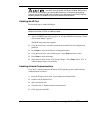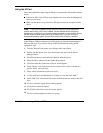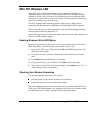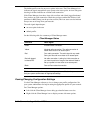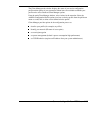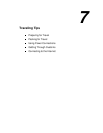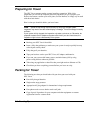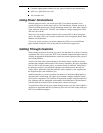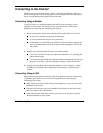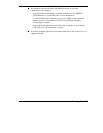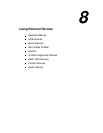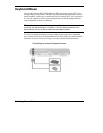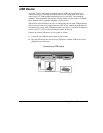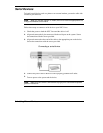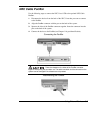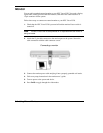
7-4 Traveling Tips
Connecting to the Internet
Whether you are on a business trip or vacation, connecting to the Internet while you
travel can be expensive and frustrating unless you are prepared. Here are some tips on
how to avoid frustration and expense while on the road.
Connecting Using a Modem
If you have access to a standard telephone jack while you are traveling, you can
probably use your modem for dial-up access to your favorite sites. Follow these
guidelines for connecting and configuring your system.
1.
Before leaving home, check with your Internet Service Provider to see if it has:
A local access number at your point of destination.
A toll-free number that can also save you money.
In the absence of a local ISP access number or toll-free number, charging the
call to your home phone can be less expensive than charging the call to your
hotel room.
2.
Prepare your system for phone line access in another country.
Line access outside of a hotel may require the addition of a “9” preceding the
phone number string.
To circumvent unusual dial tone sounds sometimes encountered in hotels, you
may have to modify a system configuration setting to “ignore the dial tone.”
3.
Always check the phone line to determine whether or not it is digital vs. analog.
NEVER use your modem with a digital phone line. Doing so can destroy your
modem!
Connecting Using a LAN
Many hotels and convention centers now offer direct Internet access for a nominal fee.
If your hotel provides this service, follow these guidelines for connecting and
configuring your system.
Many hotels can provide a LAN cable by prearrangement, so you can travel with a
minimum of accessories.
Plug the LAN cable into your system and the LAN connector in the room or hall
where you want to access the Internet.
After connecting the LAN cable, connect your system to an AC power outlet (if
desired) and power on your system.



